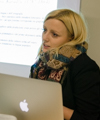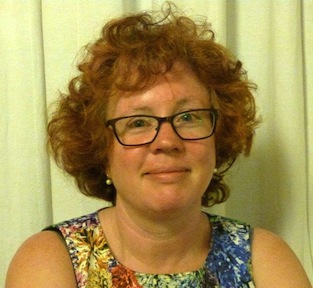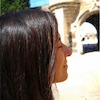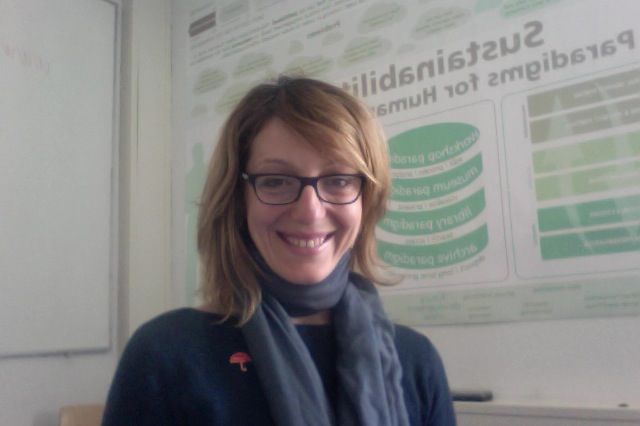Studying at the University of Verona
Here you can find information on the organisational aspects of the Programme, lecture timetables, learning activities and useful contact details for your time at the University, from enrolment to graduation.
Academic calendar
The academic calendar shows the deadlines and scheduled events that are relevant to students, teaching and technical-administrative staff of the University. Public holidays and University closures are also indicated. The academic year normally begins on 1 October each year and ends on 30 September of the following year.
Course calendar
The Academic Calendar sets out the degree programme lecture and exam timetables, as well as the relevant university closure dates..
| Period | From | To |
|---|---|---|
| I semestre | Oct 1, 2015 | Jan 9, 2016 |
| II semestre | Feb 22, 2016 | May 31, 2016 |
| Session | From | To |
|---|---|---|
| Appelli d'esame LINGUE - sessione invernale | Jan 11, 2016 | Feb 20, 2016 |
| Appelli d'esame LINGUE - sessione estiva | Jun 3, 2016 | Jul 29, 2016 |
| Appelli d'esame LINGUE - sessione autunnale | Aug 29, 2016 | Sep 29, 2016 |
| Session | From | To |
|---|---|---|
| TESI DI LAUREA - LINGUE | Nov 18, 2015 | Nov 20, 2015 |
| TESI DI LAUREA - LINGUE | Mar 30, 2016 | Apr 1, 2016 |
| TESI DI LAUREA - LINGUE E LL.SS | Jul 6, 2016 | Jul 8, 2016 |
| TESI DI LAUREA - LINGUE E LL.SS | Nov 23, 2016 | Nov 25, 2016 |
| Period | From | To |
|---|---|---|
| FESTA DELL'IMMACOLATA | Dec 8, 2015 | Dec 8, 2015 |
| VACANZE DI NATALE | Dec 23, 2015 | Jan 6, 2016 |
| Vancanze di Pasqua | Mar 24, 2016 | Mar 29, 2016 |
| FESTA DELLA LIBERAZIONE | Apr 25, 2016 | Apr 25, 2016 |
| FESTA DEI LAVORATORI | May 1, 2016 | May 1, 2016 |
| FESTA DEL SANTO PATRONO SAN ZENO | May 21, 2016 | May 21, 2016 |
| FESTA DELLA REPUBBLICA | Jun 2, 2016 | Jun 2, 2016 |
| Vacanze estive | Aug 8, 2016 | Aug 15, 2016 |
Exam calendar
Exam dates and rounds are managed by the relevant Foreign Languages and Literatures Teaching and Student Services Unit.
To view all the exam sessions available, please use the Exam dashboard on ESSE3.
If you forgot your login details or have problems logging in, please contact the relevant IT HelpDesk, or check the login details recovery web page.
Academic staff
 birgit.alber@univr.it
birgit.alber@univr.it
 alessandro.bigardi@univr.it
alessandro.bigardi@univr.it

Bradas Marija
 marija.bradas@univr.it
marija.bradas@univr.it
 paolamaria.caleffi@univr.it
paolamaria.caleffi@univr.it
 veronica.gobbato@univr.it
veronica.gobbato@univr.it
 tiziana.mancinelli@univr.it
tiziana.mancinelli@univr.it
 sara.paolini@univr.it
sara.paolini@univr.it
 fabioantonio.scrignoli@univr.it
fabioantonio.scrignoli@univr.it
Study Plan
The Study Plan includes all modules, teaching and learning activities that each student will need to undertake during their time at the University.
Please select your Study Plan based on your enrollment year.
1° Year
| Modules | Credits | TAF | SSD |
|---|
2° Year activated in the A.Y. 2016/2017
| Modules | Credits | TAF | SSD |
|---|
3° Year activated in the A.Y. 2017/2018
| Modules | Credits | TAF | SSD |
|---|
| Modules | Credits | TAF | SSD |
|---|
| Modules | Credits | TAF | SSD |
|---|
| Modules | Credits | TAF | SSD |
|---|
| Modules | Credits | TAF | SSD |
|---|
Legend | Type of training activity (TTA)
TAF (Type of Educational Activity) All courses and activities are classified into different types of educational activities, indicated by a letter.
Digital Humanities (2017/2018)
Teaching code
4S02248
Teacher
Coordinator
Credits
6
Language
Italian
Scientific Disciplinary Sector (SSD)
INF/01 - INFORMATICS
Period
Semester 1 dal Oct 2, 2017 al Jan 20, 2018.
Learning outcomes
Digital Humanities is an interdisciplinary scholarly field that creates and applies digital methods and technologies to analyse and interpret cultural, social, historical, literary, and philological issues. This course gives the opportunity to students in Humanities to develop with the theoretical framework, the technical skills necessary to have a broader understanding and the capacity to explore different textualities in a digital environment. It will mostly be focused on the modelling and editing stages and visualisation and analysis on digital publication. The main goal of this course is to explain theories and methodological approaches and gain technical expertise in order to undertake and reflect on the issues of digital scholarly editions and digital tools in Humanities.
Program
This course will deal with the following topics:
- An introduction to Digital Humanities and a short history of web evolution and digital textualities. The main projects of the Digital Scholarly Editions will be shown and commented upon.
- Standards and encodings, multimediality and information architecture
- Mark-up languages: XML, HTML5, CSS, focussing in particular on TEI mark-up language (Text Encoding Initiative), on its important role within the Digital Humanities and its tools.
- Text analysis tools and applications. An overview of some important NPL methodologies; indexes, frequencies, concordances (Concordance, Tapor);
- Fundamentals of interface design. Content Management Systems (CMS) like Wordpress, or other tools such as BoilerPlate and Bootstrap;
- Digital publishing: ebooks and new devises.
| Author | Title | Publishing house | Year | ISBN | Notes |
|---|---|---|---|---|---|
| Susan Hockey | Companion di Digital Humanities | Blackwell | 2008 | ||
| Teresa Numerico, Domenico Fiormonte, Francesca Tomasi | L'umanista digitale | Il Mulino | 2010 |
Examination Methods
Attendance and student contribution to class class is strongly encouraged. Materials and resources will be given out during the course to support the lessons. Final projects will include a possible online publication at the end of the course.
Those unable to attend lessons must agree their exam schedule with the teacher.
THE HISTORY OF DIGITAL HUMANITIES:
Susan Hockey - The History of Humanities Computing, in Companion di Digital HUmanities (Oxford: Blackwell, 2004.)
http://www.digitalhumanities.org/companion/view?docId=blackwell/9781405103213/9781405103213.xml&chunk.id=ss1-2-1&toc.depth=1&toc.id=ss1-2-1&brand=defaultx
Teresa Numerico, Storia dell'interazione tra tecnologia e sapere umanistico in L'umanista digitale (Bologna: Il mulino, 2010)
DIGITAL SCHOLARLY EDITIONS AND TEI (Text Encoding Initiative)
Patrick Sahle "What is a Scholarly Digital Edition?" in Digital Scholarly Editing: Theories and Practices, Elena Pierazzo e Matthew Drisco, a cura di (Cambridge: Open Book Publisher , 2015).
https://www.openbookpublishers.com/product/483/digital-scholarly-editing--theories-and-practices
La codifica di testi. Una introduzione. Roma: Carocci , 2005. (1 Capitolo)
DariahTeach - https://teach.dariah.eu/ in particolare "Digital Scholarly Editions: Manuscripts, Texts and TEI Encoding" - La prima, la seconda e la quarta settimana.
TEXT ANALYSIS
Fabio Ciotti. 2015. Sul distant reading: una visione critica. Semicerchio, LIII(2) www.pacinieditore.it/wp-content/.../semicerchio-2-2015-indice.pdf
T. Underwood. 2017. A Genealogy of Distant Reading. Digital Humanities Quarterly 11(2). Web: http://www.digitalhumanities.org/dhq/vol/11/2/000317/000317.html
Type D and Type F activities
To discover all the teaching activities accredited by the foreign teaching college click here
Career prospects
Module/Programme news
News for students
There you will find information, resources and services useful during your time at the University (Student’s exam record, your study plan on ESSE3, Distance Learning courses, university email account, office forms, administrative procedures, etc.). You can log into MyUnivr with your GIA login details: only in this way will you be able to receive notification of all the notices from your teachers and your secretariat via email and soon also via the Univr app.
Student login and resources
Assegnazione tutore
Attività accreditate D/F
Calendario didattico dettagliato
Cambio lingua curriculare
Competenze informatiche
Competenze linguistiche (prima e seconda lingua)
Competenze linguistiche in triennale (terza lingua CFU F)
Compilazione del piano didattico
Corso di Lingua portoghese
Erasmus+ e altre esperienze all'estero
Linguistic training CLA
Graduation
List of theses and work experience proposals
| Stage | Research area |
|---|---|
| PROGETTO MAMBRINO Stage per bibliografia | Various topics |
Stage e tirocini
Nel piano didattico della laurea triennale in Lingue e culture per l’editoria (L11 ED) è previsto un tirocinio/stage obbligatorio (CFU 6).
Le attività di stage sono finalizzate a far acquisire allo studente una conoscenza diretta in settori di particolare interesse per l’inserimento nel mondo del lavoro e per l’acquisizione di abilità professionali specifiche.
Le attività di stage sono svolte sotto la diretta responsabilità di un singolo docente presso studi professionali, enti della pubblica amministrazione, aziende accreditate dall’Ateneo veronese.
I crediti maturati in seguito ad attività di stage saranno attribuiti secondo quanto disposto nel dettaglio dal “Regolamento d’Ateneo per il riconoscimento dei crediti maturati negli stage universitari” vigente.
- Tutte le informazioni in merito agli stage per futuri studenti sono disponibili alla pagina Stage e tirocini.
- Tutte le informazioni in merito agli stage per studenti iscritti sono pubblicate in MyUnivr - come fare per - stage e tirocini.
- Tutte le informazioni in merito agli stage per le aziende sono disponili alla pagina Stage e tirocini per azienze.
Ulteriori informazioni al seguente link https://www.univr.it/it/i-nostri-servizi/gestione-carriere-studenti-lingue-e-letterature-straniere/stage-e-tirocini-lingue-e-letterature-straniere


 +39 045802 8465
+39 045802 8465





























